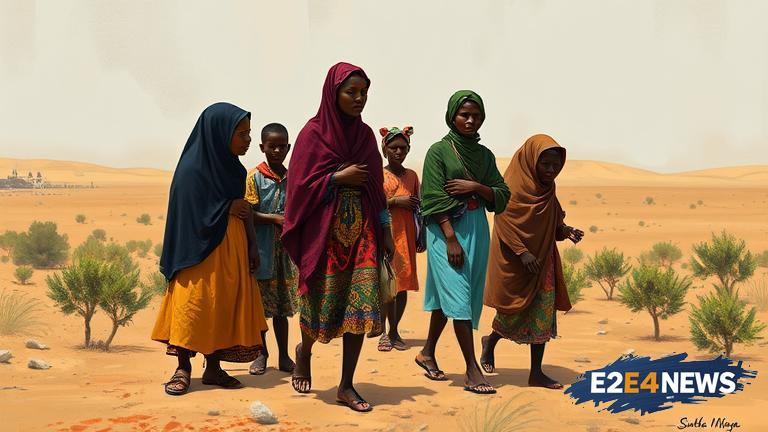The United States, in its efforts to manage migration flows, has been considering novel approaches, including the deportation of migrants to third countries, with Africa being a potential destination. This strategy is part of broader third-country agreements, where the US would work with other nations to host migrants who are seeking asylum or attempting to enter the US illegally. The idea, though controversial, reflects the Trump administration’s commitment to tightening border security and reducing the influx of migrants. Critics argue that such a policy could violate international law and the rights of asylum seekers. The plan involves negotiations with several African countries to accept these migrants, potentially in exchange for economic aid or other forms of cooperation. The move is seen as a significant shift in US immigration policy, aiming to deter migrants from attempting to reach the US by making the journey less appealing. However, human rights organizations and legal experts have expressed deep concerns, citing the potential for human rights abuses and the lack of due process for those affected. The policy also raises questions about the capacity and willingness of African countries to absorb and integrate these migrants, considering the economic and social challenges they already face. Despite these concerns, the US has been pursuing similar agreements with other regions, including Central America, as part of its comprehensive approach to immigration reform. The negotiations with African countries are ongoing, with the US government emphasizing the mutual benefits of such agreements, including enhanced security and economic cooperation. Nonetheless, the proposal has sparked intense debate, both domestically and internationally, with many calling for a more humane and legally sound approach to migration management. The international community is watching closely, as the implications of such a policy could have far-reaching consequences for global migration patterns and human rights standards. In response to criticism, the US administration has defended its position, arguing that the policy is necessary to protect national security and uphold the rule of law. As the situation unfolds, it remains to be seen how these negotiations will proceed and what the ultimate outcome will be for migrants and the countries involved. The policy’s success or failure will depend on various factors, including diplomatic efforts, economic incentives, and the response from the international community. Furthermore, the long-term effects on migration trends, regional stability, and the humanitarian situation will be critical areas of focus. The involvement of African countries in these agreements could also lead to new dynamics in international relations, potentially influencing geopolitical alignments and development partnerships. Ultimately, the deportation of migrants to Africa as part of third-country deals represents a complex and contentious issue, requiring careful consideration of legal, ethical, and practical implications.
